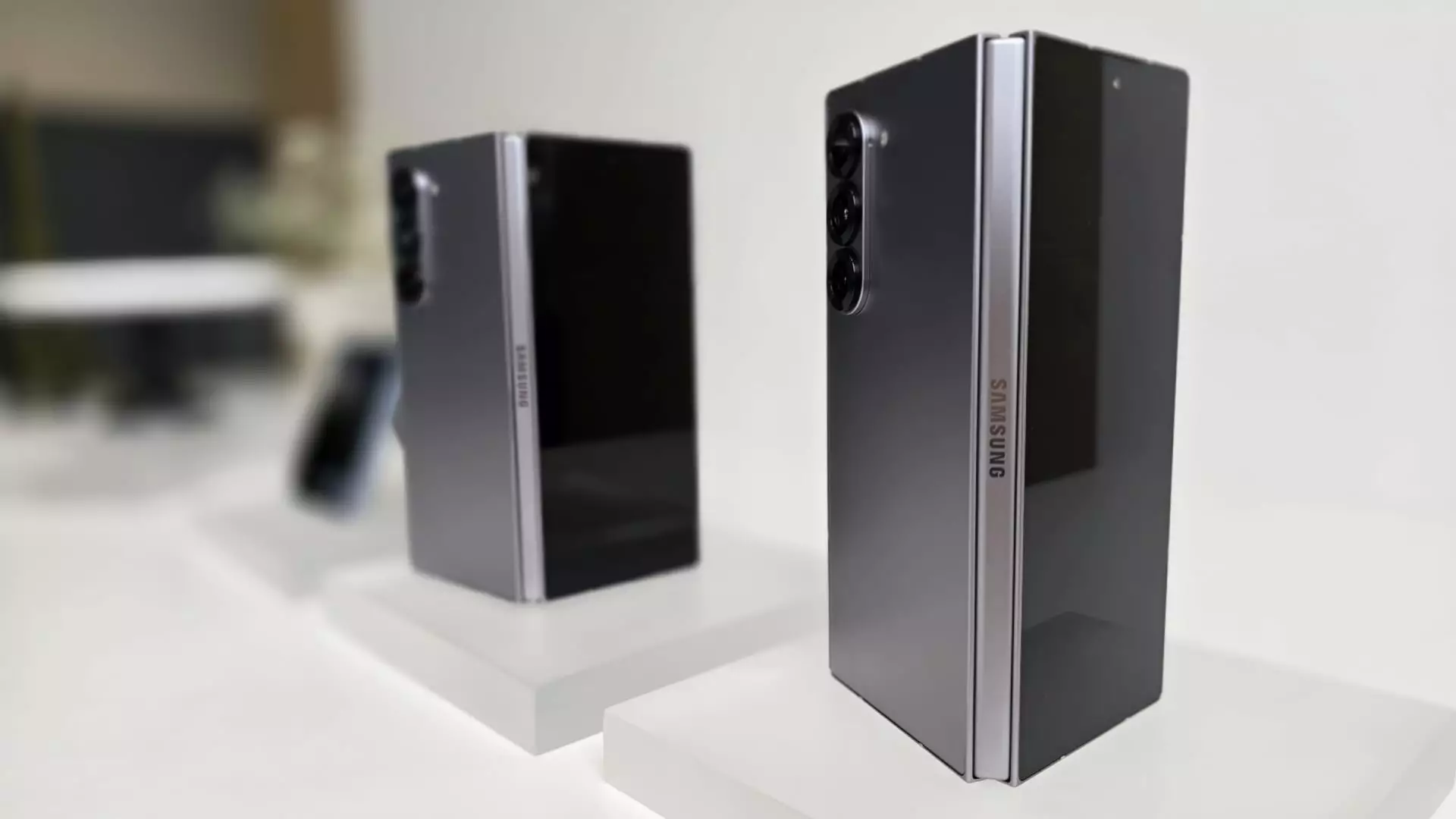Since the advent of foldable smartphones in 2019, a technological rivalry has unfolded, primarily pivoting around Samsung. The South Korean titan pioneered the foldable phone concept, capturing both consumer interest and market share. However, this initial thrive has turned into a challenging battleground, one where rivals such as Honor and Oppo are breathing down Samsung’s neck. Their aggressive foray into the foldable realm has raised the stakes, pushing design parameters to new limits and redefining consumer expectations. Samsung now faces a pressing urgency: how can it maintain its leading position in a market ripe for disruption?
In the current landscape, thinness is not just a design preference; it’s a critical competitive edge. Foldable phones are no longer novelties, but they face scrutiny concerning their practicality and usability. The allure of a portable device that can transform from a compact phone into a tablet-sized screen is losing its charm against the backdrop of sleeker alternatives.
Competition Heats Up: Honor and Oppo
The competition for the slimmest foldable smartphone has intensified, particularly with Honor’s and Oppo’s recent offerings. For instance, the Honor Magic V3, at 9.2 millimeters when folded, outshines Samsung’s Galaxy Z Fold6, which measures 12.1 millimeters. Similarly, Oppo’s Find N5, at a mere 8.93 millimeters, elevates consumer expectations for what a foldable device can — and should — be. These advancements signal a shifting landscape where thickness and weight are paramount to attracting a discerning audience unwilling to compromise for added functionality.
According to Ben Wood of CCS Insight, it’s essential for Samsung to adapt its design philosophy to the thinness achieved by its competitors. “Samsung needs to step up,” Wood insists. This statement encapsulates the sentiment echoing within tech circles, emphasizing that the future of foldable phones may depend more on aesthetics than utility.
Consumer Preferences: A Sluggish Market
Despite the groundbreaking nature of foldables, their impact on the overall smartphone market has been less pronounced than anticipated. Forecasts from CCS Insight suggest that foldables will constitute a mere 2% of the smartphone market in the current year. This stagnation raises critical questions about consumer preferences. Are foldables facing an identity crisis, or is it merely a case of consumer apathy?
The answer lies in the dissonance between innovative design and practical need. While the concept of a folding screen is undeniably exciting, consumers often struggle to justify the investment. Traditional monoblock phones have a decades-long foothold in consumer habits, offering reliability and familiarity. By delivering thinner foldables that approximate traditional phones, there’s potential for Samsung to reignite interest in this segment. Yet, skepticism persists.
The Role of Apple and Future Innovations
As if the competitive landscape weren’t complex enough, the looming presence of Apple adds another layer of intrigue. The tech giant, historically reluctant to embrace the foldable concept, is reportedly poised to unveil its own folding iPhone in the near future. Apple’s entry could either uplift the foldable segment or eclipse current players, including Samsung.
If Apple succeeds in combining foldability with its seasoned reputation for innovation and quality, Samsung must act swiftly. In a saturated smartphone market, the dominance of any single player hinges on its ability to adapt and lead through technological innovation. The impending release of Samsung’s latest iteration of the Galaxy Z series could be a game-changer. However, simply being thinner may not suffice — consumers are demanding more than just aesthetics; they seek functionality that seamlessly integrates into their lifestyles.
The Path Forward: Samsung’s Opportunity
The path ahead for Samsung is fraught with challenges, yet it is also replete with opportunities. The impending launch of its thinner foldable smartphone could signal a renaissance for the company if they can successfully resonate with the evolving consumer landscape. However, Samsung cannot lose sight of what consumers truly seek; they want devices that fulfill genuine needs, alongside impressive design.
Only time will tell whether Samsung can reclaim its position as the undisputed leader in the foldable smartphone market, but it must act decisively, strategically evaluating not only the external pressures but also the internal shifts within consumer behavior. The ethos of innovation and responsiveness will be the linchpin in determining success in this highly competitive arena.

